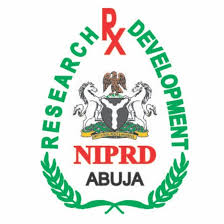The National Institute for Pharmaceutical Research and Development (NIPRD) has announced that the implementation of the €18 million grant from the European Union (EU) to support vaccine research in Nigeria will begin shortly.
The Director-General, Dr Obi Adigwe, revealed this during an interview with StarReporters on Wednesday in Abuja.
In 2024, the EU and the Nigerian government signed a collaborative agreement worth €18 million to strengthen Nigeria’s vaccine research and development framework.
The grant supports the rollout of the National Plan for Vaccine Research, Development and Local Production (2024–2034), a strategic 10-year roadmap aimed at enhancing local vaccine production capacity, boosting research output, and reducing the country’s reliance on imports.
Adigwe described the funding as a pivotal moment in addressing Africa’s vaccine dependence, which was exposed during the COVID-19 pandemic.
“You will remember that during COVID, it was shameful that the whole of Africa depended on the Global North and Asia to produce vaccines,” he said.
“We also witnessed vaccine nationalism, where countries hoarded vaccines though they preached equity and justice.
That experience made it clear that we must develop our own capacity to research and produce vaccines locally. That is why we pursued this EU grant to build such capacity, and the result is this €18 million funding, which I think is the largest vaccine-related grant awarded so far in Africa.”
He said the grant helped facilitate the creation of a national vaccine roadmap developed by NIPRD in collaboration with relevant ministries, international partners, academic institutions, and private sector stakeholders.
The roadmap details a phased plan for research, development, clinical trials, technology transfer, infrastructure upgrades, regulatory strengthening, and full-scale local manufacturing. It also includes provisions for building and retaining a skilled biopharmaceutical workforce to sustain the ecosystem.
Adigwe explained that the document was officially endorsed by both the Coordinating Minister of Health and Social Welfare and the Minister of State, after which the EU gave final approval for the grant.
“Implementation is set to begin. We already sent a team to UNICEF, which is one of the grant’s implementing partners, and we expect to announce major developments soon,” he said.
He noted that NIPRD was using its mandate to build a resilient health security system through pharmaceutical innovation, and projected that in the next decade, Nigeria could see at least three to four local companies manufacturing vaccines based on the current roadmap and support under the Presidential Initiative on Vaccine Development.
“We are happy to share the vaccine roadmap with stakeholders and partners interested in this important journey towards vaccine self-sufficiency.
Ultimately, our goal is to ensure that no Nigerian is left behind in accessing lifesaving vaccines.”
Adigwe added that the grant represents more than just a research investment—it is a strategic move for national security, economic stability, and health equity.
The initiative aligns with Nigeria’s broader health sector reform goals, which include local production, advancing research, and improving pandemic preparedness.
(NAN)


